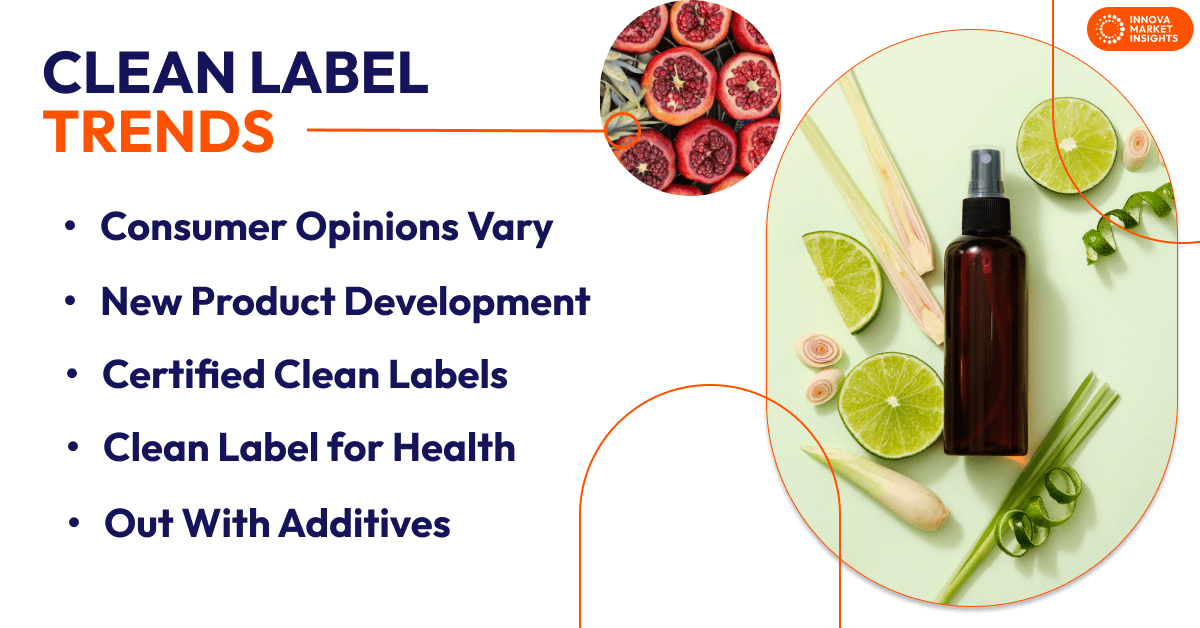There is no single definition of a clean label despite consumer interest being higher today than in the past ten years. Initially, the focus of clean label was very much on health and the removal of unhealthy additives, but according to today’s trends, many consumers also associate the concept with transparency — also known as “clear label” — and environmental responsibility. Here’s the scoop on the latest trends in the clean label market.
Consumer Opinions Vary
The top three meanings global consumers associate with clean label trends are the absence of additives, the use of natural ingredients, and environmentally friendly positioning. Consumers also believe clean label should be a key focus for innovators, with more than 2 in 3 consumers globally saying they are somewhat influenced by clean label. However, the meaning of clean label seems to vary regionally. Asian consumers want their clean label products to be environmentally friendly, while LATAM, North America, and Europe look for ‘no additives and preservatives’ in clean label products.
New Product Development
Another trend in the clean label market is that nearly 1 in 3 new products carry some type of clean label claim. In NPD, the biggest trends in clean label claims are ‘no additives or preservatives’ (15%), followed by ‘organic’ (10%), environmental claims (8%), and ‘GMO-free’ and ‘natural’ (5%). These claims are the most important trends in children’s and everyday foods, with NPD in baby and toddler covering 70.6% of clean label launches.

Certified Clean Labels
The use of organic and non-GMO claims is often supported by certification in the clean label market. Many certification logos on packaging are established in the consumer consciousness, potentially helping to drive home the overall message of trends in clean label. These certifications are particularly relevant in organic and non-GMO positioning trends. Organic clean label claims are among the biggest trends and the most advanced in Europe and strongest in baby food, meat substitutes, and sugar. Non-GMO clean label claims are most established in North America, where there has even been legislation to ensure labeling when GM ingredients are used. Non-GMO claims are highest in health-oriented clean label categories, particularly meat substitutes.
Clean Label for Health
More than 1 in 4 consumers look to clean label products as a primary route to health. Consumers globally tackle healthy eating by avoiding additives and preservatives as much as possible, so the presence of clean label is a core health demand for a significant section of the world’s population. The same number of consumers also claim to choose products that positively boost their nutrition or benefit their body’s functioning, including products with claims such as ‘high in protein’ or ‘high in fiber.’
Out With Additives
The clean label phrase ‘additive removal’ is on the rise in growing markets across the Middle East and Africa, Asia and Latin America. As for more developed regions, penetration of additive-free clean label claims peaked and started to decline in recent years, most noticeably with a 10% drop in Australasia. Globally, additive removal is most important in child-oriented clean label categories and vehicles for healthy and complete nutrition or hydration such as soups, cereals, and soft drinks.
Europe Leader in Environmental Claims
Innova’s consumer research also signals a growing correlation between the use of clean label and environmental action trends in the minds of customers. Products are increasingly deemed clean if they carry environmental benefits. Environmental messages are gaining ground at 16% CAGR over the past five years even though the use of many clean label claims is mature within global NPD. The development of eco-friendly claims could represent the next stage in clean label product development.
What’s Next for Clean Label?
In the consumer trends space, space, consumers are spending more time identifying clean label
products and looking for products whose claims reflect their values. However, manufacturers are keeping in mind that too many labels on products can be confusing. (However, as clean label puts the emphasis on clean, manufacturers keep in mind that too many labels on a product can be confusing.) As a result, label simplification is being explored, especially since 66% of consumers claim they would prefer one label that captures the complete impact on the environment over multiple labels.
This article is based on our report, “Global Trends in Clean Label.”
If you are interested in receiving this report, feel free to request a demo through our Contact Form.